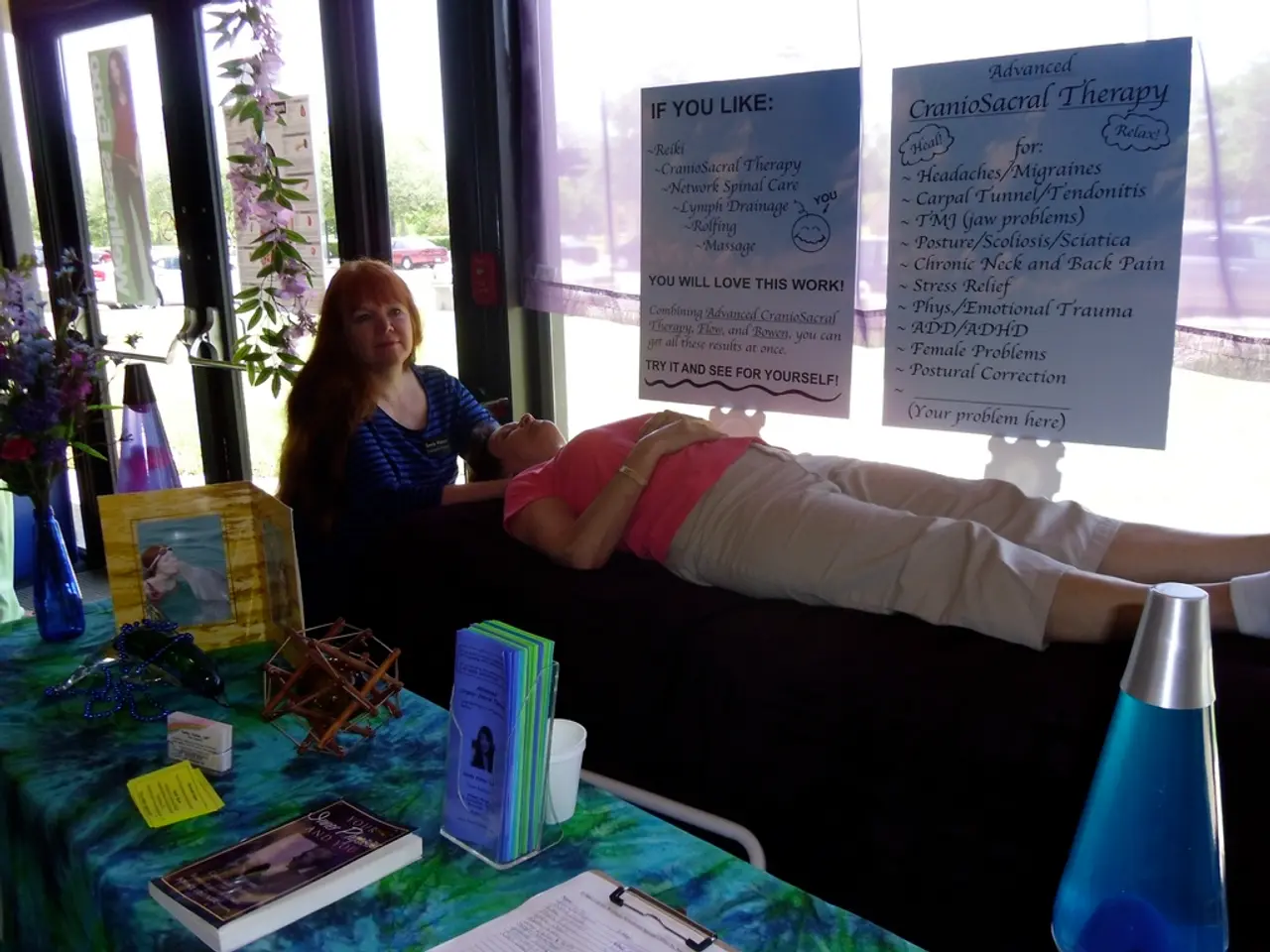Anticipated Outcomes in Therapy Process
In today's digital age, seeking help for mental health issues has become more accessible and convenient than ever before, thanks to online therapy. This modern approach to therapy is designed to solve problems, improve mental health, and promote healthier thoughts, actions, and relationships.
The First Therapy Session
During your first therapy session, a therapist may ask about your reasons for seeking therapy, symptoms you're experiencing, goals for treatment, and personal life details. This initial conversation helps the therapist understand your unique situation and tailor the therapy to your needs.
Coping Mechanisms and Progress
Online therapy provides valuable coping mechanisms that help individuals manage difficult situations and emotions. Whether it's understanding the connections between thoughts, feelings, and behaviors (as in Cognitive Behavioral Therapy, or CBT), setting short-term, achievable goals (as in Solution-Focused Brief Therapy), or managing anxiety, stress, and trauma symptoms through mindfulness and grounding exercises, online therapy offers a variety of techniques to suit different conditions and preferences.
Diverse Techniques for Different Needs
Common types of online therapy techniques include CBT, Solution-Focused Brief Therapy, Mindfulness-Based Therapy, Talk Therapy (psychodynamic or humanistic), and crisis support/mental health counseling. Each technique varies in focus and application, catering to clients with different needs and preferences.
Cognitive Behavioral Therapy (CBT)
CBT is particularly effective for depression and anxiety, showing long-term symptom reduction when therapist support is included. It targets negative thought patterns and behaviors and is widely used for anxiety, depression, and stress-related conditions.
Solution-Focused Brief Therapy
This approach focuses on the present and helps clients set short-term, achievable goals, making it suitable for clients seeking quick, practical strategies for specific life challenges.
Mindfulness-Based Therapy
Mindfulness-Based Therapy incorporates mindfulness and grounding exercises to manage anxiety, stress, and trauma symptoms. This method is often supported by guided meditations available within therapy apps.
Talk Therapy
Talk Therapy, including psychodynamic or humanistic approaches, emphasizes emotional exploration and self-awareness, typically benefiting clients pursuing long-term personal growth and understanding of deep-seated emotional issues.
Crisis Support & Mental Health Counseling
This technique offers rapid support for urgent mental health concerns such as grief or acute stress, usually via phone, video, or chat, providing timely intervention.
Effectiveness of Online Therapy
Research confirms that online therapy is equally effective as in-person therapy for mild to moderate depression, anxiety, and relationship issues. A 2025 meta-analysis in JMIR Mental Health showed that 86% of clients using online therapy made equal or better progress compared to traditional face-to-face care, especially with hybrid approaches combining chat and video.
The Importance of Professional Standards
Our website's therapists are trained, skilled, and experienced in helping people with various mental health issues. They maintain high professional standards and offer therapy through video, voice, and text, enhancing flexibility and continuity of care.
Affordability and Convenience
Online therapy is available through our website, making it easy, affordable, and convenient. Insurance may only cover a limited number of therapy sessions, and it's important to discuss what can be achieved during that time with your therapist.
A Personal Journey
Therapy isn't a one-way street, and it's important to be comfortable and open to trusting your therapist. Therapy can result in significant improvements in relationships with both oneself and others. It can lead to increased self-awareness, allowing individuals to recognize and regulate emotions and behavior patterns. However, therapy can also be challenging and emotionally draining, and some people may need to set aside time to decompress after a session.
In summary, online therapy employs diverse techniques suited to different conditions—CBT for depression and anxiety, solution-focused for quick problem-solving, mindfulness for stress and trauma, and talk therapy for deep emotional work—with research supporting overall comparable effectiveness to face-to-face treatment. Our website's articles are grounded in scientific research and evidence-based practices, written by experienced mental health-wellness contributors and extensively reviewed by clinical experts.
- During the first therapy session, a licensed therapist may ask about your reasons for seeking online therapy, symptoms you're experiencing, goals for treatment, and personal life details, to tailor the therapy to your unique needs.
- Online therapy offers a variety of techniques such as Cognitive Behavioral Therapy (CBT), Solution-Focused Brief Therapy, Mindfulness-Based Therapy, Talk Therapy, and crisis support/mental health counseling, each catering to clients with different needs and preferences.
- Research has shown that online therapy, especially with hybrid approaches, is equally effective as in-person therapy for mild to moderate depression, anxiety, and relationship issues, with 86% of clients making equal or better progress compared to traditional face-to-face care.
- Our website's licensed therapists maintain high professional standards, offering therapy through video, voice, and text, ensuring flexibility, continuity of care, and ongoing mental health support.




